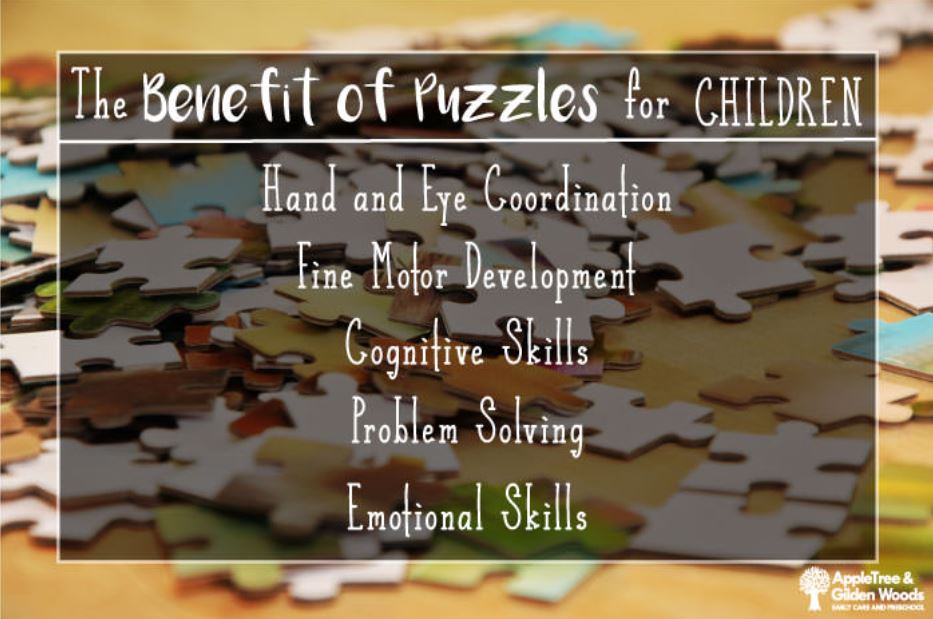- 855.520.6712
- Schedule a Tour
Our Blog: January 17, 2022
Puzzles are a win-win for both children and adults! To children, puzzles are a fun toy to play with. To adults, puzzles are an educational opportunity that allows learning through play.
So often children benefit from playing with puzzles without even knowing it. There are numerous ways that puzzles support a child’s development:

- Hand and Eye Coordination: When children put puzzles together, they are connecting what they see with their eyes with what they feel in their hands therefore, learning how to create a desired outcome.
- Fine Motor Development: When children reach for and manipulate puzzles pieces, they are strengthening their ability to produce precise movements with their hands and fingers, helping develop fine motor skills.
- Cognitive Skills: When children put a puzzle together they will have to use their memory to recall which pieces fit where in the puzzle.
- Problem Solving: When children attempt to match a puzzle piece with the puzzle board it promotes trial and error. Children must use problem solving skills to accomplish the task of completing a jigsaw puzzle with the correct pieces in the correct places.
- Emotional Skills: When children work on a puzzle independently or in a group it provides an opportunity to practice patience and persistence. When the puzzle is complete it can also instill a sense of pride and accomplishment in children.
Here are some helpful tips to remember when completing a puzzle with your child:
- Puzzles with large knobs may be easier for young children to manipulate.
- Use words to describe the puzzle pieces’ color, shape or pattern when you’re helping a child locate a specific piece.
- Allow your child to choose a puzzle with a theme that excites them, this will encourage your child to engage with the puzzle even more.
- If children are becoming frustrated with a puzzle allow them to remove the pieces and model how it should be put together first. Then, allow them to try it again on their own.
Hopefully, these benefits and helpful tips encourage you to spend time completing a puzzle with your child today!
